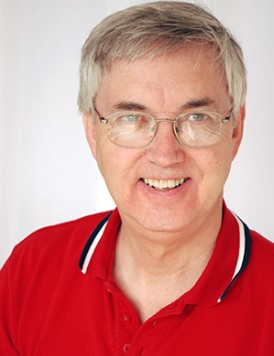In the 1970s, when I was in my twenties, I became involved in counter-culture and it expanded my mind – and all without the consumption of ‘interesting substances’. I get high on learning and knowledge. I learnt about power structures in our society, and others’ too. I learnt about disadvantaged groups and how those inequalities were maintained.Long before the word became un/fashionable, I woke to the ways of bias and unfairness in language, laws and social structures.I was born in a time when only white men read the TV news.
The problems were glaring once pointed out. I was strongly supportive of women’s rights, black rights and gay rights, despite being none of these. If you cared about people, rather than merely those you know and understand, these positions were unavoidable. I still feel privileged to have befriended so many wonderful people and received such a solid social education.It required a willingness to rethink views to which I had been raised, but a part of my privilege pf birth was that I was open to differing views and keen to grow intellectually.
As far as I can tell, those views that I held then have not waned in the intervening half century. It was about R.E.S.P.E.C.T. for each and every person.Perhaps it is an obvious thing to say, but listening carefully to the views of others and considering them thoughtfully is not the same as accepting each and every one as potentially correct, or even respecting each standpoint.A very big topic, but one aspect is whether others also show that respect. This takes us into controversial territory. I can hope for Palestinians to have a safe and secure home and homeland while disdaining those of their supporters who show us the ultimate disrespect by taking lives with bombs and guns.
There is an urgency, a desperation, that pushes some beyond humanity.Whether we should respect possessions takes us into extreme philosophical territory. Theft is disrespectful. Is it theft to enter our country without our permission? Each is a selfish act, justifiable by fear, but can it be justified by poverty? Certainly, fleeing France is not fleeing persecution or penury.In the seventies, there was anger within the communities seeking to emerge from disadvantage. This has waned, but those disadvantages have not been fully overcome and some anger – and the reaction to it – remains. It is nevertheless a shock to hear that same justified anger from trans activists when it comes in the deep tones and manner that is associated with male aggression. It gets our attention, which is its intent, but also alienates.Social media does what it says on the tin, but also institutionalises anger and its strident expression.
In America, not just newspapers but broadcasting organisations are polarised. Even before twits tweeted, as I saw first hand when visiting, this created ghettos for ideas and communities.There are some in Britain who support such trends, here, and seem unfazed by the associated gross inequalities in the U.S. in wealth, income, health, housing and education. A much larger section of the population goes with the flow.
These are the hearts and minds that political parties need to win in under four years’ time.Imperfections in our elected representatives and chronically underfunded public services come and go, but a caring society is worth campaigning for. Imagine if political parties that are essentially single issue, such as the nationalists and Greens, bolstered their offering with right wing, dog eat dog whistle fare. They don’t, because they know what really matters for all our futures: compassionate politics.




Comments
This article has no comments yet. Be the first to leave a comment.